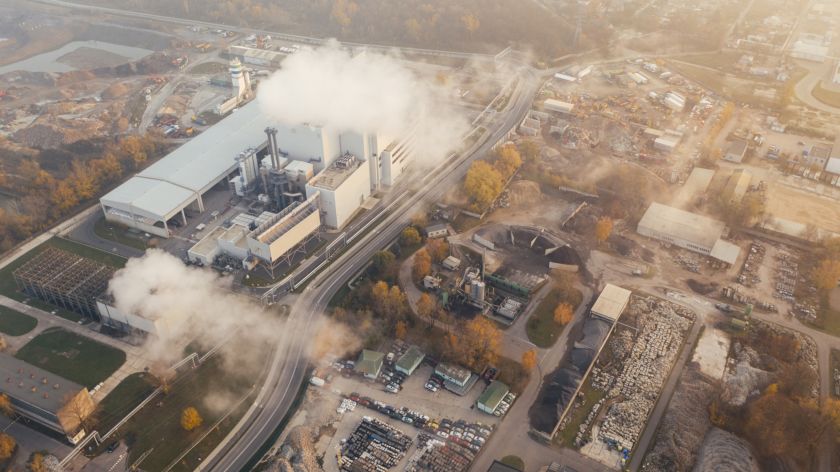Limiting global warming is an incredible undertaking, but still possible
-
 Foto ter illustratie (via Pixabay)
Foto ter illustratie (via Pixabay)
The latest IPCC report leave little doubt: we have to put in serious work to keep global warming to manageable levels. A co-author of the report, climate researcher Heleen de Coninck, as well as management scientist Vincent de Gooyert explain what we will have to do.
Limiting global warming to 1.5 degrees Celsius will require herculean effort, but it is still possible. That is the main message in a report by the UN’s climate panel IPCC, which was published yesterday. If we keep doing what we’re doing now, then it will be 3.2 degrees warmer in 2100 than in 185-1900, before the Industrial Revolution. Climate- and innovation scientist Heleen de Coninck, a professor in Eindhoven since 2020 but still connected with Radboud University, was one of the hundreds of authors of the IPCC report.
To which part of the report did you contribute?
‘I helped with the chapter on innovation, regarding the question of how to accomplish the transition to a more climate-friendly world. We do emphasize that technology and innovation alone won’t cut it; it will require a combination of technology and society. In the end, it’s all about what people do.’
According to all of you, what is the most important thing that needs to happen next?
‘Not just one thing; it’s vitally important that a lot of things happen at the same time. CO2-free energy systems, coupled with different land use, coupled with greener methods of transportation, coupled with reforestation, et cetera. Above all, things need to happen fast; the coming decade will be crucial.’
That all sounds incredibly ambitious. Do you think it can be done?
‘I don’t have a choice. This is the only way to keep global warming contained. However, my hope is also based on research which shows that things can move faster than you think. A lot of kinds of technology become financially feasible in the past few years. Solar power and wind energy, for instance, or electric methods of transport. That can kickstart a self-reinforcing effect that current models underestimate.’
‘The knife cuts both ways’
‘The same goes for consumer behaviour. By reducing our intake of meat and dairy, the amount of land dedicated to agriculture can be reduced significantly, possibly by several dozen percent. Said land could then be used for reforestation or other nature – after all, biodiversity is also under pressure. But it could also be used for growing crops used in bio energy and biomaterials. Food, nature, and energy are connected through land use. Besides that, a more plant-based diet is better for our health; the knife cuts both ways.’
This won’t happen all on its own.
‘No, it will not. There is already a vanguard of vegetarians and vegans, but it won’t be significant until social norms change. We can see that that is possible if we look at smoking. People don’t smoke indoors anymore, and it’s becoming increasingly ‘not done’ in public places outdoors. Something like that requires that the government be emphatically involved. They can raise costs, promote alternatives, ban things, or start a campaign to get people to eat less meat. So far, the government has done precious little in this regard.’
Taking carbon out of the atmosphere – the solution?
Vincent de Gooyert agrees that more things need to be done than ever before to stay within the 1.5-degree boundary. ‘But it can still be done. And right now, more things are being done than every before.’ De Gooyert is an expert in catching and storing CO2, so-called carbon capture and storage (CCS). According to the IPCC, this practice should play an important role in combating global warming along with other technologies. Starting in 2050 there will need to be negative CO2 emission, which means that CO2 will need to be removed from the atmosphere.
However, this is rarely done at the moment for several reasons, according to the associate professor. One of the main reasons is that CCS is a generic term for many different technologies. Some are more sustainable than others, but this difference is not sufficiently clear to most policy makers, he says. ‘For example, you can use CCS to prevent new CO2 emissions by using filters at power plants. But you can also use it to remove carbon from the cycle by catching the CO2 released in the burning of biomatter; after all, those plants took CO2 from the air to grow.’
Another issue surrounding CCS is that parties keep pointing fingers at each other. Industries are worried about the large costs involved in the installation of CO2 filters, for instance, and want subsidies. Politicians are worried that there is not enough support for this and that they won’t get re-elected. And finally, civilians don’t trust that companies have the environment at heart.
That is why there needs to be a new narrative, according to De Gooyert. ‘It could help if everyone noticed that this is not a zero sum game; we all benefit from sustainable technologies. In that sense, CCS can be a way to connect people. It can help to reach the climate goals while simultaneously offering perspectives for the industry; storing CO2 in the ground will require technology that they can deliver.’




